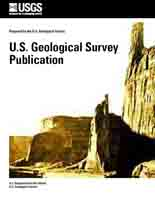MODFLOW-2000, the U.S. Geological Survey modular ground-water model -- Documentation of the Model-Layer Variable-Direction Horizontal Anisotropy (LVDA) capability of the Hydrogeologic-Unit Flow (HUF) package
Links
- Document: Report (pdf)
- Download citation as: RIS | Dublin Core
Abstract
Suggested Citation
Anderman, E.R., Kipp, K., Hill, M.C., Valstar, J., Neupauer, R., 2002, MODFLOW-2000, the U.S. Geological Survey modular ground-water model -- Documentation of the Model-Layer Variable-Direction Horizontal Anisotropy (LVDA) capability of the Hydrogeologic-Unit Flow (HUF) package: U.S. Geological Survey Open-File Report 2002-409, 61 p., https://doi.org/10.3133/ofr02409.
ISSN: 2331-1258 (online)
| Publication type | Report |
|---|---|
| Publication Subtype | USGS Numbered Series |
| Title | MODFLOW-2000, the U.S. Geological Survey modular ground-water model -- Documentation of the Model-Layer Variable-Direction Horizontal Anisotropy (LVDA) capability of the Hydrogeologic-Unit Flow (HUF) package |
| Series title | Open-File Report |
| Series number | 2002-409 |
| DOI | 10.3133/ofr02409 |
| Year Published | 2002 |
| Language | ENGLISH |
| Description | 61 p. |


